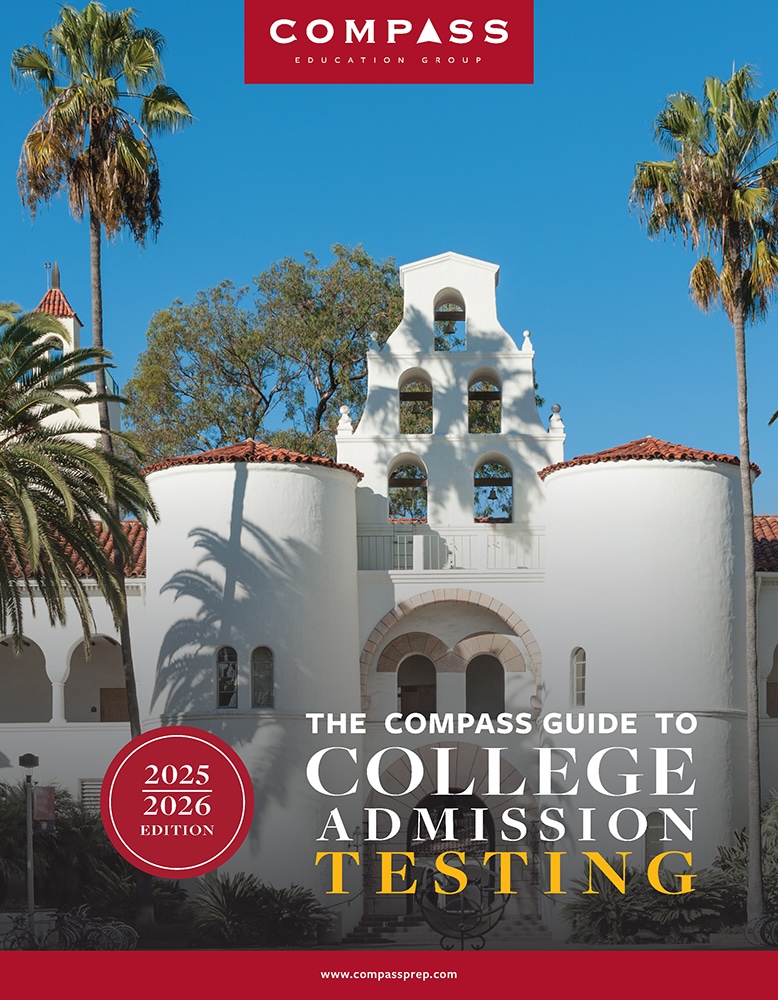 A test prep plan that would be too much or too soon for most students is practical and necessary for others. In this post we consider the factors that make early-starting and/or longer-term prep a wise choice.
A test prep plan that would be too much or too soon for most students is practical and necessary for others. In this post we consider the factors that make early-starting and/or longer-term prep a wise choice.
For thirty years the philosophy underpinning our work has been that successful, personalized test prep should fit conveniently into a student’s schedule without overshadowing or interfering with all the more meaningful activities in his or her life. For most students, this means an approach to test prep and testing that seeks efficiency as one of its goals. Large score increases are nice; they’re even better when they are achieved without taking up any more of the student’s time and energy than absolutely necessary.
Test prep’s benefits tend to be realized most expeditiously when students are further along academically and maturationally. Programs that target test dates in spring of 11th grade, rather than early 11th grade or even 10th grade, allow time for students to learn more math and grammar in school, continue building reading comprehension ability both in and out of school, gain more experience with high-stakes testing generally, and perhaps develop more motivation and maturity.
While test prep starting points have crept earlier and earlier, a majority of students still don’t start until the summer before 11th grade or even as late as the spring of 11th grade. (A few even wait until the summer before 12th grade.) Even the earliest starters rarely peak on an official test date until spring of 11th grade. Quality test prep might take three to nine months, but rarely should it require 18–24 months.
Who are the students who start in 10th grade, and what are their rationales? What are the sensible and specific reasons to dive in earlier than the norm?
Click Each Scenario Below to Reveal a Detailed Explanation:
RECRUITED ATHLETE
Everything related to college admission tends to be accelerated for recruited athletes. College coaches often want to know as early as possible whether an athlete would be easily admissible or would require the admission office to make an exception. Some of our students are successful in asking a college coach whether a carefully administered diagnostic test from Compass is enough to put the coach’s mind at ease for now. If so, they are able to stick to more typical timelines for official testing. In other cases, delaying might cause a coach’s interest to wane or be deemed a red flag. If a recruit needs an official test score in 10th grade or very early in 11th grade, then jumping into test prep in 10th grade may be appropriate.
SUPER-BUSY SUMMER
The summer before 11th grade is a popular time for test prep to begin. Students want to get a head start before they are weighed down by their heavy academic workloads and extracurricular activities in 11th grade. But what if you’re a camp counselor in Maine all summer or have other commitments that don’t allow for test prep to get underway? Even with the flexibility of online tutoring you might not have the time or energy to take advantage of the summer. In this case, is it better to simply wait until the fall to get started? In many cases, yes, that would be better. If you’ll have plenty of time in 11th grade, waiting may be more efficient, for all the reasons discussed earlier in this post. But for some students, a head start feels essential, and that means easing into test prep in 10th grade rather than doing nothing until after 11th grade is underway.
UNUSUAL 11th GRADE SCHEDULE
A rationale that is similar to but different from a packed summer would be a completely impacted 11th grade year in which there simply won’t be time to do more than a bare minimum of test prep. For example, every year we work with students who spend the entire spring semester at the High Mountain Institute in Colorado. This pushes more scheduling demands into the fall semester, which in turn may put more pressure on testing earlier. In cases like this, there may be an especially strong need to post a peak score on a late summer or early fall test date. And if that goal requires more than just the 2–3 months of summer to prepare, then the prep creeps into 10th grade. [Note that a peak score the summer after 10th grade simply isn’t realistic for students who aren’t already quite high-scoring initially. Most students need the academic development of 11th grade to occur before they are likely to max out. Sometimes falling all the way back to the summer before 12th grade makes more sense than overdoing it in 10th grade.]
ADDRESSING BROADER ACADEMIC CONCERNS
For many students, test prep is a specialty, applied strategically and surgically, with the sole purpose of higher test scores. This mindset is sensible for students who simply want to maximize their current academic abilities towards the best possible score increase. Other students have broader goals attached to their work with us. The SAT or ACT off on the horizon may provide the opportunity and the impetus to address nagging weaknesses in math or reading comprehension, for example. Or, they may have academic or test-taking weaknesses for which they are able to compensate in school but that are magnified by fast-paced, high-stakes standardized tests. In these cases an early start may make sense. Compass has a special program called Fundamentals that we often deploy in such a situation, and we’d likely work with the student’s coursework from school as well.
LEARNING DIFFERENCES
Many of our students with learning differences are also gifted scholars and naturally strong test-takers, so a learning difference diagnosis certainly does not automatically mean that we need to start early. However, for some students, standardized testing is the context in which the challenges created by learning differences are most pronounced. As the single most common accommodation for learning differences is extended time to take the test, it’s not surprising that additional preparation time is often helpful for students with learning differences. Experimenting with different approaches, working through unanticipated obstacles, and being sure not to pull too much time away from academic studies are all sound reasons why our students with learning differences may opt to start earlier. In some cases, we even help with diagnostic tests for 9th or 10th graders to determine whether, and what type of, accommodations should be pursued in the first place.
TEST ANXIETY
Many of our students must face down considerable anxiety provoked by standardized testing and the high stakes attached to these scores. For some this anxiety is tied to a medical diagnosis; for others it’s simply a nagging constant they must always keep under control in order to do their best. A longer-term, low intensity, gradual approach to test prep can help students manage their nerves and build confidence. However, it’s also possible for an early start to backfire by simply attaching more pressure to testing and giving the anxiety more time to build up in the student’s mind. This topic requires thorough and careful collaboration between us and the student’s parents in cases when it’s a significant concern.
HIGH SCORERS
Compass students are disproportionately high-scoring relative to the national pool of test-takers. We have at least a handful of students with perfect scores on every test date, and a large number of students with nearly perfect scores. Some of these students had to work hard from significantly lower starting scores. Others did not; their baseline percentile scores (typically from a 10th grade PSAT) were already in the high 90s. For students in the latter group, much of the rationale for delaying testing until 11th grade may not apply. There’s no rush either, but we see little downside to knocking out the testing early if the student prefers it that way. Note that we said little downside, not no downside. We know of at least one selective university that will not consider testing prior to the 11th grade. Carnegie Mellon, we’re looking at you.
TUTOR MATCH
Occasionally we have families who like to ease into tutoring early so as to have an especially ample amount of time to connect with the ideal tutor for that student and build a strong working relationship in advance of the more intense tutoring and testing period to come. We don’t think this is necessary, but it comes up now and then, and we don’t object either. If you’re requesting a specific tutor or if perhaps you need a lot of time to get comfortable with a new teacher, we can talk about it.
SUBJECT TESTS
We’re mentioning it last, but the single most common reason to begin Compass tutoring in the 10th (or 9th) grade would be to prepare for a Subject Test. Many 9th and 10th grade students are in Honors or AP classes (World History or a science especially) that represent the most advanced level they will take in a particular subject. In these cases, it’s usually worth investigating whether taking the corresponding Subject Test at the end of that school year would be a good idea. This is not an automatic decision, and we would typically administer diagnostic tests to be sure the student is well-suited to take the test officially. The student might take the diagnostic test in late winter or early spring, confirm that the official test is a go, and then allow a couple months for any focused preparation that needs to be done.
Do any of these scenarios describe you or your 10th grader? If so, give us a call to discuss how we can help. Even if your circumstances aren’t described here and you see no reason not to wait until after 10th grade to begin prep, you can still give us a call. We’ll talk about any previous scores, schedule your first practice tests (usually for early summer), evaluate whether Subject Tests are relevant for you, and help you block out a testing timeline for 11th grade. Meanwhile, we hope you are enjoying 10th grade and that you have a strong second half of the school year.


My daughter scored 1560 on May 4th test. Her essay score is 16. She is a sophomore. Your article say CMU wont accept her scores.
Nair,
As of this writing, CMU still states: “Only test scores from junior or senior year are acceptable.” This is an absurd policy.